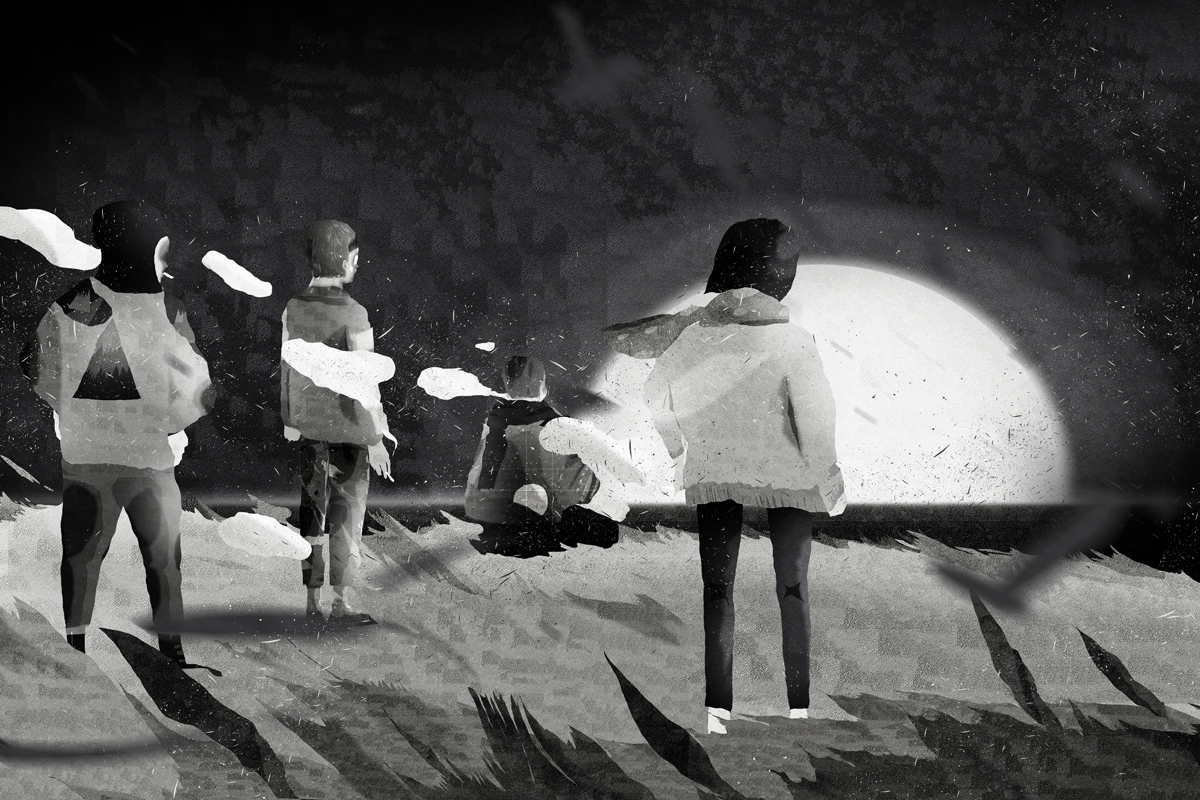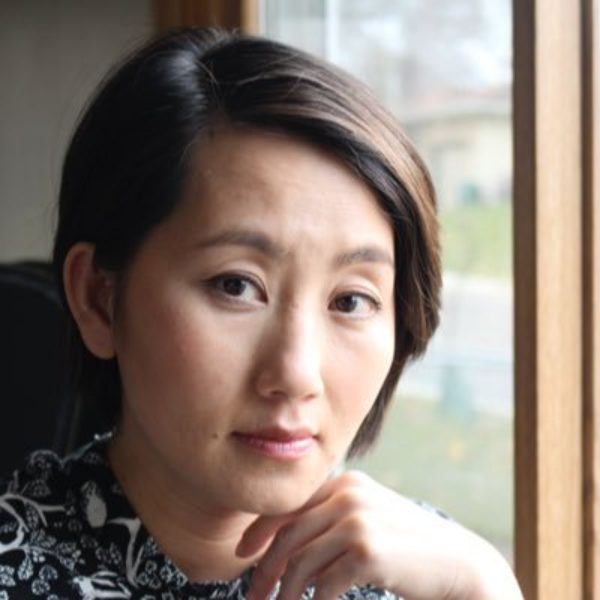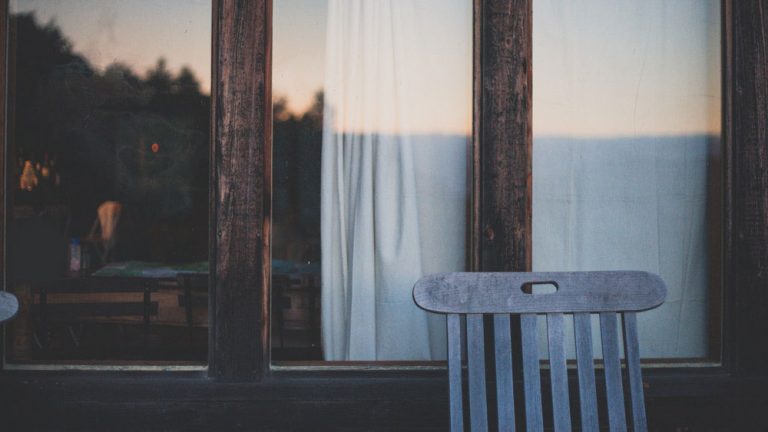
Everything Prepares Us for Something in the End
Image by Smoky Tu/Flickr, Attribution-NonCommercial-NoDerivs.
My host drove me around the outskirts of Dallas, Texas in his clean car. It was bright and hot outside, a stark contrast to the cold of Minnesota I had just left behind. The late afternoon sun reflected off the front windshield. He was giving me a small tour of Dallas, the city where John F. Kennedy had been murdered.
We were in a poor neighborhood with small one-story houses falling apart. The main business corridor held auto repair garages, restaurants, and pawn shops. All the signs were in Spanish. He turned toward the side streets. In the yards, empty of people, there were big dogs with sharp teeth.
In front of each front window, there was a grove of banana trees growing wild. The trees were healthy. They grew tall. I imagined little light could penetrate into those windows.
I asked, “Do the banana trees yield fruit?”
He answered, “No, the season doesn’t allow the trees enough time to actually produce fruits. They just grow them.”
The man shrugged, then added, “Maybe they miss warmer places, old homes, old countries.”
The man made more turns, and we left the neighborhood behind. Evening came in shades of gray, the stretch of light leaving the sky. We ended up before a beautiful orthodox chapel, where inside we were met with twinkling lights dangling from a tall tree, and tables with men and women sipping wine from delicate glassware, eating vegetarian curries and other foods spiced from far away.
Seated at our table, looking up at the evening sky, beneath the twinkling lights from the tree limbs, I could not dislodge what I’d seen: neighborhoods full of people who would rather look upon familiar flora than the sunlit streets of America.
It was not hard for me to imagine or understand why a people, displaced by economic tides, would rather look upon a window full of banana leaves and trunks, a façade of America that reminded them of home rather than the real roughness of its streets. I was myself a refugee child who had found here in America not the land of promised dreams, but graveyards full of broken promises and loved ones.
***
My brother-in-law sat on the chair and leaned down to be closer to us children. From where I sat in the group, his face was round and full, it loomed closer to the ceiling than the floor. His hands were pressed together in the fashion of a Thai greeting. He used his thumbs to hold a pencil across his hands. He turned his wrists, opened his palms, and the pencil shifted underneath both hands, now side by side, facing down. The other children struggled with the motions, thinking, overthinking the pencils in their own hands. In one go, I did it. I tried the motions over and over, and it worked again and again.
He said, “You are a fast learner.”
Those were the last and only words I remember from him.
He was my brother-in-law in the Hmong relational chain. He was really my older cousin’s husband. I met him only when I visited my uncle’s house with my parents. But each time we visited, he was always nice to us children. From the adults around me, I heard bits and snippets about how much he loved my cousin. They were childless, and for her it had been an unbearable pain. They moved from one shaman’s ritual to the other, from one fertility treatment to the next. But these things were not so important to me then. What was important was that a kindly brother-in-law had taught me a trick, the first trick I had ever learned.
I remember him in the clothes of the late 1980s and early ’90s. I remember him as he was, when he was still alive: thinning hair parted to the side. A soft spoken man who favored dress pants and button up white shirts away from his work as a postal man.
The night our brother-in-law died, the family phone in the kitchen rang and woke us up. My sister and I could hear our father open the door to my parent’s room and scramble down the stairs to the ringing phone. Our father’s steady voice, grew steadier with each word he spoke. This was how we knew that something was wrong.
We stood at the top of the stairs waiting for our father in our night shirts. I could feel the cold coming from the tiles to my bare feet.
Our father was surprised to find us there.
He said, “Go to bed. It’s too cold.”
From our mother and father’s room, we could hear our mother’s voice, barely a whisper because she did not want to wake up our baby brother and sister, “Bee, what’s wrong?”
My older sister reiterated our mother’s words, “Daddy, what’s wrong?”
Our father answered, in the fashion of most Hmong men of his age, remnants from the war in Laos, in a voice without emotion, “Evidently, son-in-law Blong is dead.”
Blong had been healthy. He and his wife lived in a small apartment. They had just found out that they were pregnant after over a decade of trying to have children. Although early in the pregnancy, they were expecting twins. They were happy.
He died in his sleep. The couple had gone to bed per their usual routines. Sometime in the night, my cousin had reached for her husband. She’d felt his soft flesh, still warm. She pressed her hand on his heart. No beat. When she turned on the light, she saw that he was dead. My brother-in-law died somewhere in the space of his dreams.
Years after the fact, I can still see my cousin in that black sweater, crying on the glass cover of Brother-in-law’s coffin, her face pressed to its smooth surface, her arms encircling the casket, eyes closed tight, her belly full of babies.
***
America has not turned out to be as kind as many of us had hoped. Perhaps some of us had journeyed here thinking that the physical distance would be able to tear us away from the places that had brought us life, but could not nurture it. Still, America is the place where we are hoping to cultivate life — even as death visits us in life and in dreams.
***
Late one night, fast asleep I woke up in my dreams. I knew I was dreaming but the knowledge could not stem the tide of grief shooting through my body, the cries I knew were not imagined.
In the dream, my father had died. I was not there at the moment of his death.
In the dream, I was sweeping the room that had been his. There were dust balls and errant hair, streaks of white and black. In the dream, the room was empty of furniture and people. I was by myself, filling the space with my grief.
I felt the absence of my father’s love. I was alive in a room that had once housed his presence. The world was as it had never been. All the color had seeped out. The air was stagnant. Neither the sun nor the moon could shine light into the dimness of my reality. In that space without anything, I felt that my father’s love had given me everything.
Everything was the sound of my childhood laughter. I could see myself as I was: a small child in a red shirt, matching red shorts, slippery red plastic boots, with light brown hair, carefully cut into a bob, brown eyes shining, and that little mouth full of stained black teeth (because I’d once eaten a whole bottle of vitamins and stained my childhood teeth permanently) wide open, my pink tongue showing the world my absolute happy, the joy of being well loved and cared for. I can still taste the residue of that feeling: bubbles bursting in my belly, tickles born on my skin; I had to wrap my middle with both my arms or chance falling apart from the heart-splitting light of my world. Years after the fact, on the edges of lips, in the softness of my inner cheek, my tongue remembers the sweetness from long ago.
In my sleep, I felt my husband’s hand reaching for mine. I felt him hold tight, squeeze for a moment, before relaxing his hold. Even his touch could not stop the cries that came from my chest. I wished he would wake me up, shake me from this unbearable sadness, but I knew no one could.
I felt my daughter, who in her usual fashion had entered our room and quietly slipped in between my husband and me on the bed, kick my side. I felt the breath of contentment she unleashed when she felt the warmth of my skin with her feet. Then, the snuggle of her small body against mine, the weight and feel her arm reaching across my front. Even that was not enough to wake me from the space of longing, the place of loss I’d stumbled into in the dark of sleep.
Nothing could, and it was this knowledge that was drowning me in the sea of sorrow in the wake of my father’s death in the dream.
***
Everything prepares us for something in the end.

